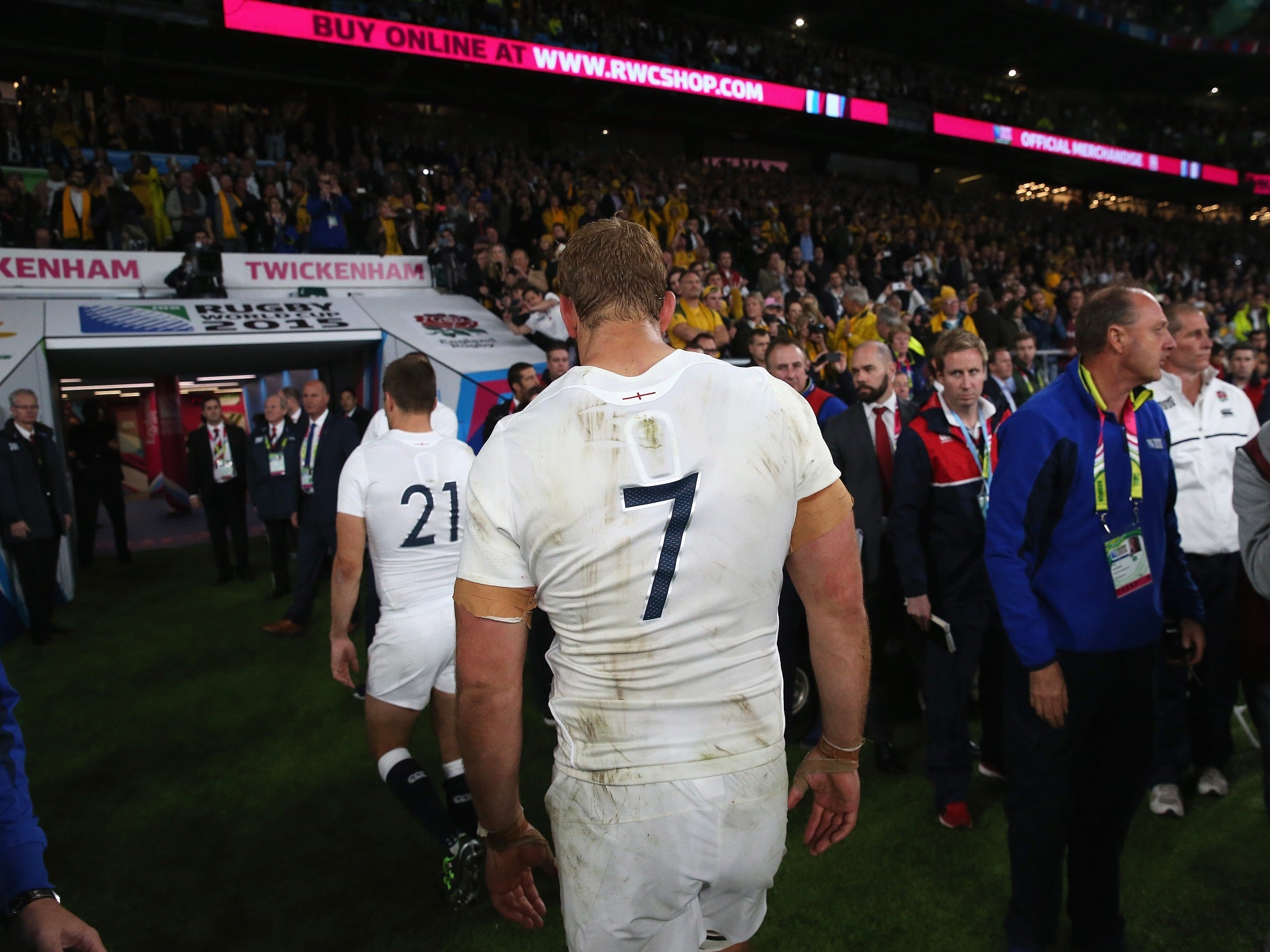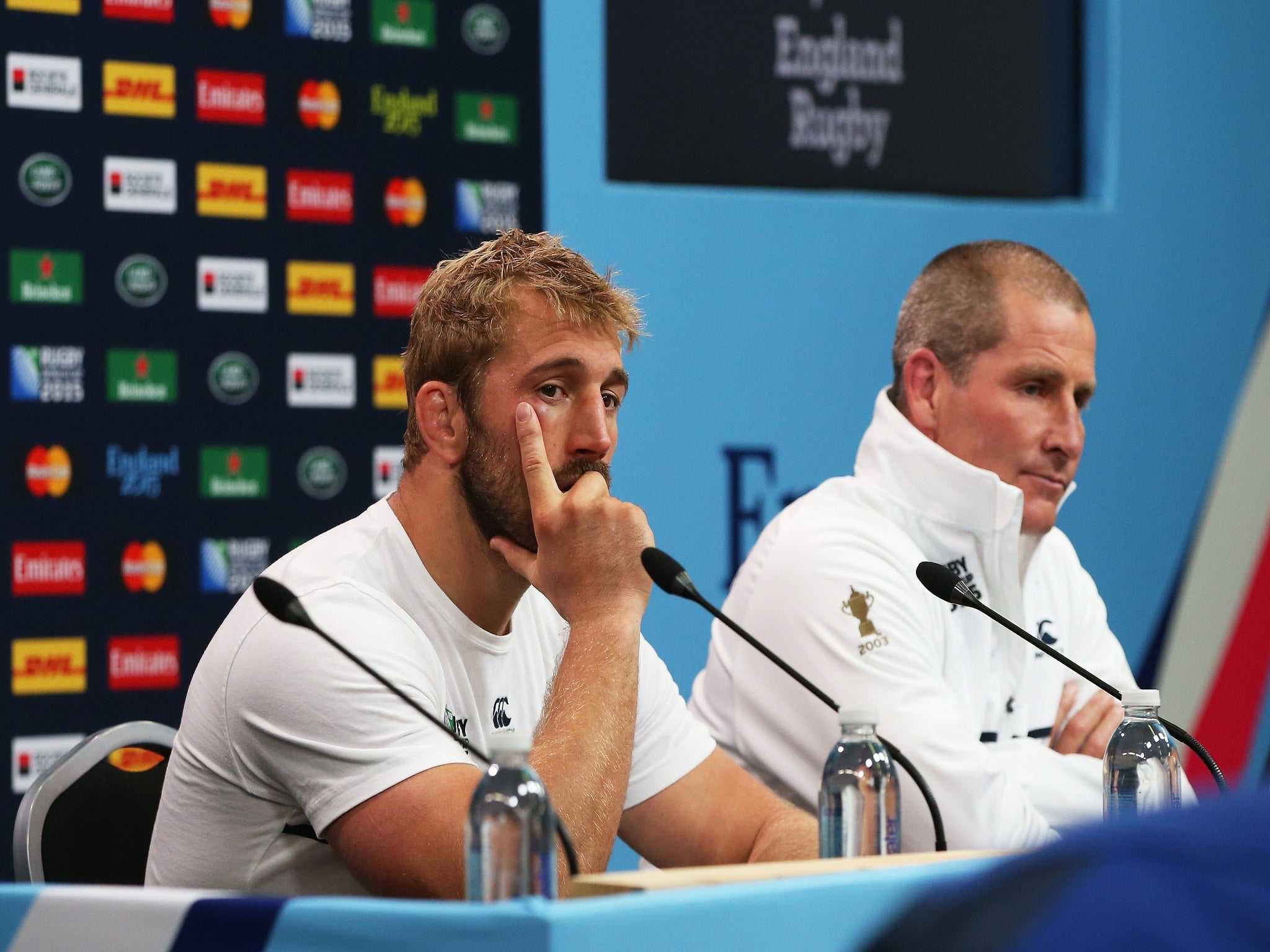England vs Australia: Cataclysmic failure leaves England with no one to blame but themselves as RWC faces ultimate test without hosts
We are about to discover the durability of this World Cup, as a seismic, must-see event without the interest of the host nation

Your support helps us to tell the story
From reproductive rights to climate change to Big Tech, The Independent is on the ground when the story is developing. Whether it's investigating the financials of Elon Musk's pro-Trump PAC or producing our latest documentary, 'The A Word', which shines a light on the American women fighting for reproductive rights, we know how important it is to parse out the facts from the messaging.
At such a critical moment in US history, we need reporters on the ground. Your donation allows us to keep sending journalists to speak to both sides of the story.
The Independent is trusted by Americans across the entire political spectrum. And unlike many other quality news outlets, we choose not to lock Americans out of our reporting and analysis with paywalls. We believe quality journalism should be available to everyone, paid for by those who can afford it.
Your support makes all the difference.England’s rugby players invited the world to an all-night party and were safely tucked up in bed, alone, before 10pm. Their friends slunk into the shadows, and their guests pillaged the drinks cabinet until they could barely stand.
The failure of Chris Robshaw’s team is cataclysmic, individually and collectively. They have no one to blame but themselves. Australia were everything they were not at Twickenham last night, ruthless, clinical, and ultimately exultant.
The consequences of England’s humiliatingly early elimination from their own World Cup are almost too profound to consider instantly, though judgement will be immediate and brutish. Dejection will mutate into rancour; reputations will be scarred indelibly.
Carefully modulated policies will be rewritten on the hoof. The RFU’s theoretical loyalty to head coach Stuart Lancaster will be tested as never before. Contracts which nominally stretch beyond the next World Cup in Japan in 2019 will be studied for escape routes.
It is the manifestation of the organisers’ worst nightmare, a grievous blow to those who hoped England’s players would do invaluable missionary work beyond the code’s heartland. We are about to discover the durability of this World Cup, as a seismic, must-see event.
Robshaw was described in the match programme as “the most important person in the country,” a quantum leap of faith in a man who, away from the game, is a surprisingly gentle, quietly amenable character.
The focus on his leadership qualities is oppressive but understandable, given the talismanic nature of his role. England captains, across the major sports, are human lightning rods, expected to conduct the electricity of unfeasible expectation.
He is not a Martin Johnson, a battlefield general able to think clearly when his nostrils are filled with the scent of cordite. He has never been fully accepted, with his right to a place in England’s back row a source of constant conjecture.
His has not been the normal stellar career trajectory, since he had to wait 966 days between his first and second caps, yet he was under more personal pressure than any of the six captains who have led England into a rugby World Cup.
Australia were booed and whistled like pantomime villains
Pressure is the common denominator of elite sport; the ability to compartmentalise the consequences of failure, and trust deeply-embedded instincts and abilities, separates the best athletes from the rest. Australia dealt with it best.
This was a match which was never going to be knowingly undersold. The publicity-seeking academic who suggested an England defeat would strip up to £3billion from the economy was misjudging the mood, since the subtext was spiritual rather than financial.
Climactic late kick offs acquire a life of their own. The wait is interminable, and doubt burrows into the brain. Darkness accentuates the mood and emphasises the drama. The temperature soars, and doesn’t need the indulgence of wrapping the home team in the flag.

The carefully choreographed march into the dressing room has become rugby’s Trooping of the Colour. Last night’s greeting for the England squad was more voluble than last week’s reception before the loss to Wales. Australia were booed and whistled like pantomime villains.
Lancaster cut an ominously isolated figure in the warm up, standing alone under the posts, poker-faced. Robshaw occupied himself in the final seconds before kick off by tying his right bootlace, as if trying to postpone his appointment with destiny.
Australia had other demons to subdue, in the form of memories of defeat by England in the 2003 final and 2007 quarter-final
For Lancaster’s squad this World Cup is not a short term thing; it is a lifetime thing. They have been ambushed by the reality of expectation, which has also transformed England’s football and cricket teams into neurotic, self-defeating wrecks.
Judged dispassionately, a tall order on such a night the threat was manageable. Australia had been beaten on their two previous visits to Twickenham, and had other demons to subdue, in the form of memories of defeat by England in the 2003 final and 2007 quarter-final.
Machismo demanded England’s forwards respond to their descent into indisciplined incoherence against Wales. Australia, duly forewarned, arrived forearmed, with the heavier pack which established initial dominance.
They wheeled the first two scrums, and England had cause to be grateful for Mike Brown’s bone-jarring, try-saving tackle on Israel Folau. They were beaten consistently at the breakdown, surrendered invaluable possession, and succumbed to the territorial pressure halfway through the first half.
The fifth phase of Australia’s attack was set up by a mesmerising offload by Will Genia, which gave Bernard Foley the scope to make the most of a three on two advantage. Australia’s fly-half kicked immaculately, and scored a second try five minutes from half-time with another brilliant flash of finishing.
No team in World Cup history has retrieved a 14 point deficit, yet England trusted the gameplan, and spent the interval studying video clips in the dressing room. That image of calm lasted as long as it took Jonny May to pull a calf muscle sprinting on to the pitch for the restart.
An Anthony Watson try, converted by Owen Farrell, rewarded some desperate belligerence, but once Farrell was sent to the sin bin with ten minutes remaining hope ebbed away. Matt Giteau, his victim, exacted appropriate revenge by scoring the last try in the game’s final flourish.
Lancaster recoiled in horror - a mocking chorus of Waltzing Matilda from the stand was mild compared to the booing which greeted his post-match interview. Winners write their own history, and losers sign their own death warrant.
Join our commenting forum
Join thought-provoking conversations, follow other Independent readers and see their replies
Comments